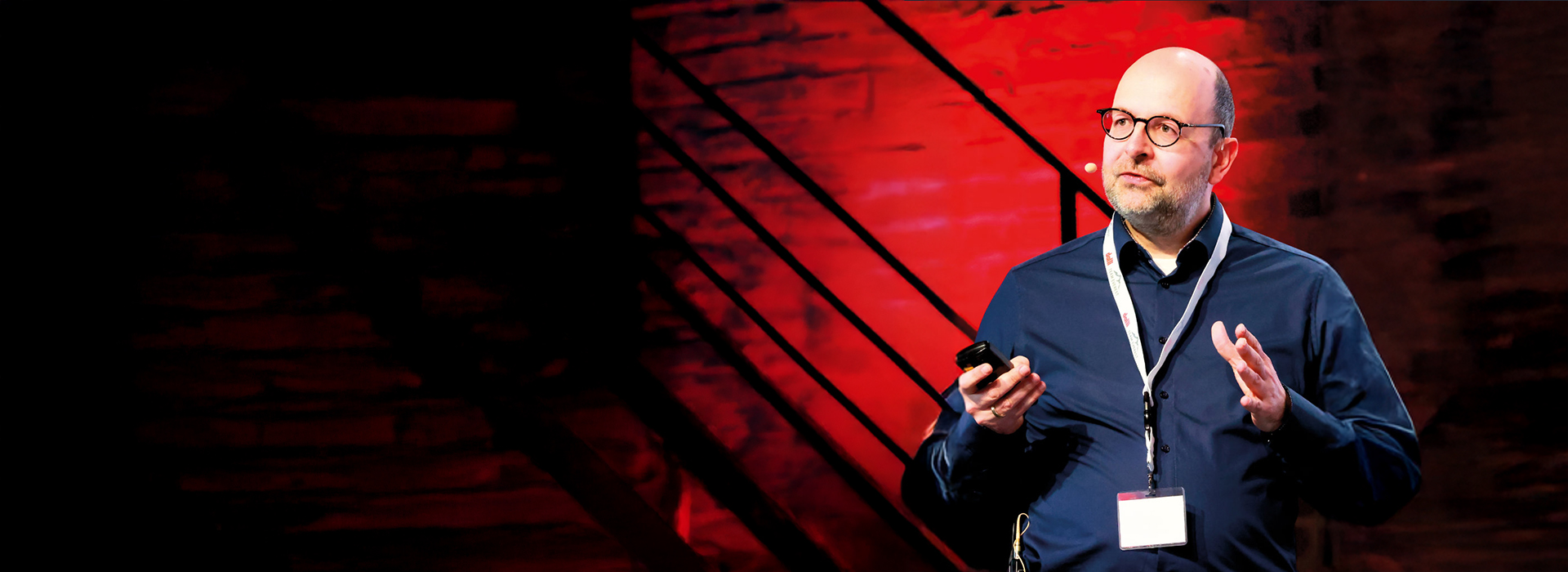
Sustainability
The chemistry has to be right
The experts from our Research & Development department contribute significantly to the sustainability of the products manufactured by dalli through innovative solutions.
Dr Stefan Müller, Head of R&D at dalli “We continuously monitor and improve the sustainability of dalli products. We owe this not only to our customers, but above all to the environment. At the same time, our products have to reconcile ecology, sustainability and value for money in order to stand up to brand and private label competition.”
You want to build a tower out of building blocks. When you have reached the highest point, someone comes and takes a block from the centre. The tower collapses. Something like this can happen in the search for suitable, sustainable ingredients for products. As soon as everything seems to be stable and suitable, there are new scientific findings: The production of a basic substance has a worse ecological balance than previously known. The tower topples and the search starts all over again.
This is part of the daily work of the Research & Development (R&D) department, one of the central specialist areas at dalli. What sounds like Sisyphean labour is intentional. This is because dalli has made the 360° analysis of the advantages and disadvantages of ingredients its principle. After all, only a holistic evaluation of a formulation can enable a finely balanced relationship between effectiveness and sustainable quality.
Sustainability with chemistry
Two terms that seem to be diametrically opposed. However, the dalli laboratories are proving that it is possible to create a functioning unit from both. To this end, the dalli researchers have committed themselves to two maxims:
Degradability and defossilisation
Degradability means that a product should biodegrade in the sewage treatment plant after the consumption cycle in the household. This was achieved, for example, in the development of a machine and crockery cleaner. The polymers (= chemical compounds consisting of molecular chains) used in its manufacture are biodegradable after the cleaner has been used. This is a big step, as polymers usually end up in sewage sludge, which ultimately has to be incinerated because it is unsuitable as a fertiliser, for example.
Defossilisation means moving away from chemicals that are obtained with the help of or from fossil fuels such as crude oil (Latin fossilis = dug up). Fossil resources are finite and their extraction is often ecologically damaging. Therefore, a central task of R&D is to find suitable alternatives. This is the challenge that the R&D “Raw Materials Group” is successfully meeting. It scans and observes the market, analyses trends, searches specifically for innovations and checks whether the alternatives are suitable for the manufacturing process.
However, it is not only the internal specifications that determine the chemical composition of a product. The product must also fulfil the customer’s requirements before it finds its way onto the shelf. This primarily concerns those ingredients that must not be included because they have not scored well in Stiftung Warentest analyses, for example. This would lead to poor ratings – and these usually have a direct impact on customers’ purchasing behaviour.
The work of R&D therefore plays a key role in determining how sustainable dalli products ultimately are. The fact that the researchers are successful in their work is proven by numerous top rankings in consumer organisation Stiftung Warentest. There, the own brands produced by dalli are almost always rated better than the brand competition.
